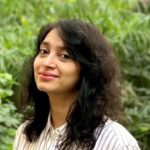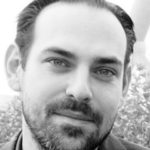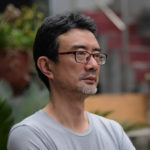WOULD I LIE TO YOU?
On the Use of Documents in Theatre

RED by Living Dance Studio, Picture Credit - Richie Wong
Key information
Dates: September 1st to October 22nd, 2022
Sessions: 3 sessions per week | 4 hours per session | 21 sessions total
Twice a week with facilitators and once a week collaborative/group work at a mutually decided time.
Mode: Online
Course Leaders: Kai Tuchmann and Anuja Ghosalkar
Fees: INR 6000/-
If the price of this workshop is prohibitive, and the fees prevent you from participating, kindly contact us at [email protected]. We have a limited number of supported places to enable participants to attend this workshop, with a fee waiver.
About
“Today here and now the document belongs to the power of the State and to very specific figures representing the State. It carries the stamps of well-known faces, figures and names. There are new actors, new heroes, and new men of the state. To that extent, we need to tear the document away from some people—without tearing it. Our job then today is to make documents illegal, not as documents of the state, but documents of existence.”
[Excerpts from Soumyabrata Choudhury’s closing lecture for Connecting Realities— a symposium curated by Ghosalkar and Tuchmann.]
The entry point for documentary theatre practice is, as the name suggests, a document. The nature of this document is varied, complex, amorphous, and shapeshifting. As an entry point — a memory, a metaphor, a gesture, an image, a site, an artwork can all be considered documents. The nomenclature of the “documentary” is overloaded with truth claims, that are constituted through the permeable border of reality and fiction.
In the symposium, titled CONNECTING REALITIES curated by the facilitators of this course, theatre scholar Rustom Bharucha stated that approaching documentary theatre through aesthetic-formal definitions will always fall short, if one does not consider the different institutionalized frameworks of cultural funding. In the spirit of this reflection, our course will set out to nurture organizational architectures that fuel this form, for which a blueprint may not exist.
We will do so in a time when almost any pursuit of truth, intermingles with (social) media`s performativity—destabilizing the logical contradictions of truth-lies, fact-fiction, and real-fake. In our times of ubiquitous computing, real events instantly transform into media and data, housed on servers. Eventually, almost all human expression becomes storage, and an object of computable manipulation—beyond the control and knowledge of the entity, classical philosophy referred to as, “the subject”. What does it mean then, to tell stories under this condition of a shifting idea of subjectivity?
Our course will equip theatre-makers and artists with techniques and aesthetics to deal with an updated notion of the document in our digitized age. The methodological starting point for the course is rooted in practical experiments, while theoretical frameworks and texts will have an interpretive function, to enable and inform understanding. In addition, there will be curated conversations between invited international artists that the participants are mandated to attend.
Terms and Conditions
- We have a limited number of seats, 12 only
- We will inform you of your participation by August 1st
- The medium of instruction of this course is English
- A docket will be made available to the selected participants before the course begins. It will provide access to the program schedule, list of speakers and sessions, readings, bibliography, and links to digital archive
Disclaimer
We invite applications from theatre makers, performers, visual artists, filmmakers, writers, artists working at the intersection of these practices, or those whose artistic practice defies easy definition. The program is NOT limited to practitioners from the arts but is open to journalists, scientists, coders, lawyers, academics archivists, researchers, people with a broad interest in documentary perspectives in theatre making.
COURSE LEADERS

Anuja Ghosalkar is the founder of Drama Queen—a Documentary theatre company, evolving a unique form of theatre in India since 2015. Her practice focuses on personal histories, archival absences and blurring the hierarchies between audience and performer—to extend the idea of theatre to create audacious work. Iterations around form and process, modes of (social) media, sites, technologies, and reclaiming narratives on gender and intimacy are critical to her performance making and pedagogy.
Her performances and workshops have been programmed by University of Oxford, Jawaharlal Nehru University, Sophiensale, Serendipity Arts Festival, National Centre for Biological Sciences, and Forum Transregionale–ZMO, among others.

Kai Tuchmann works as a dramaturge, director and academic. As a guest professor at the Central Academy of Drama in Beijing, he helped develop the curriculum for the BA Dramaturgy program there. Kai has also researched the history of dramaturgy as a Fulbright Scholar at the Graduate Center of the City University New York, and he is a Fellow of the Mellon School of Theater at Harvard University. In his internationally shown documentary theater works, Kai has explored the afterlife of the Cultural Revolution in contemporary China, the impact of urbanization on migrant workers in Europe and Asia, and the role of the body in the face of digital technologies.
GUEST SPEAKERS

Zhao Chuan, born in 1967, works across theatre, literature, film and contemporary art. He creates alternative and socially engaged theatre and is the founding member and mastermind of the Shanghai-based theatre collective Grass Stage (since 2005). For over a decade, as a theatre maker and writer, he has created a number of theatre works across China together with his collective Grass Stage.
In his session Zhao Chuan introduces his theatre practice with this collective Grass Stage. Their theatre begins with people coming together. Its production mode can also return to the gathering of people – workshop is the starting point of their work. Theatre is the response and transcendent imagination of different people of the age, life and emotion. Thus, we are constantly forging “collective” methods and aesthetics to explore how to present the narrative of different people, to activate “our” presence, and to show profound understanding of the world by people.

